Words by Emily Luan edits Tom Newland, illustrations by Erin McGarry. Student researchers Eric Aimone, Cece Daniele, Donovan Joyce, and Sean Obert.
Did you know that heating our homes and water accounts for a significant portion of the UK’s carbon emissions?
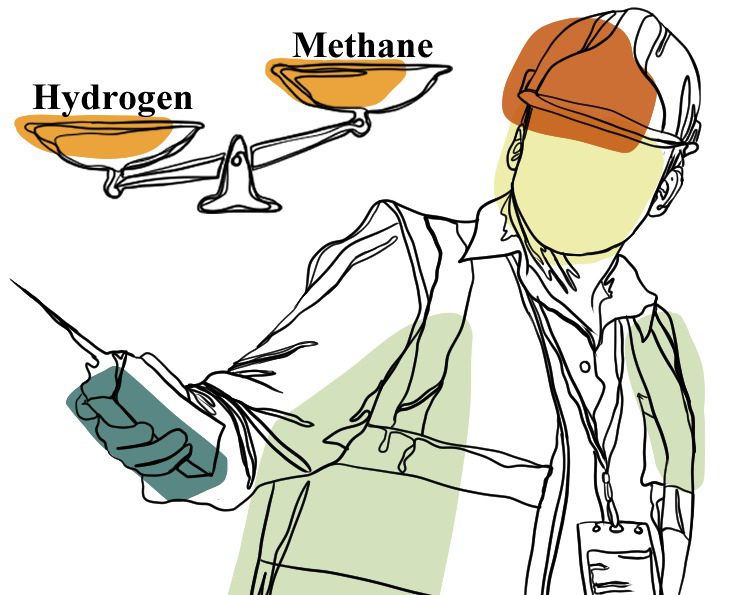
In 2017, it was responsible for 21% of the nation’s carbon footprint. But now, there’s hope for a cleaner future using hydrogen as an alternative. Unlike natural gas (methane), which adds to carbon emissions when burned, hydrogen only produces water and heat. This could help us significantly reduce our carbon footprint. Plus, it can be used with the same pipes that deliver natural gas to homes.
However, the widespread adoption of hydrogen fuel for home heating will require infrastructure changes and lowering the cost of hydrogen production. Despite these challenges, the potential of hydrogen as a greener alternative is a possibility as one element in the mix for home heating.
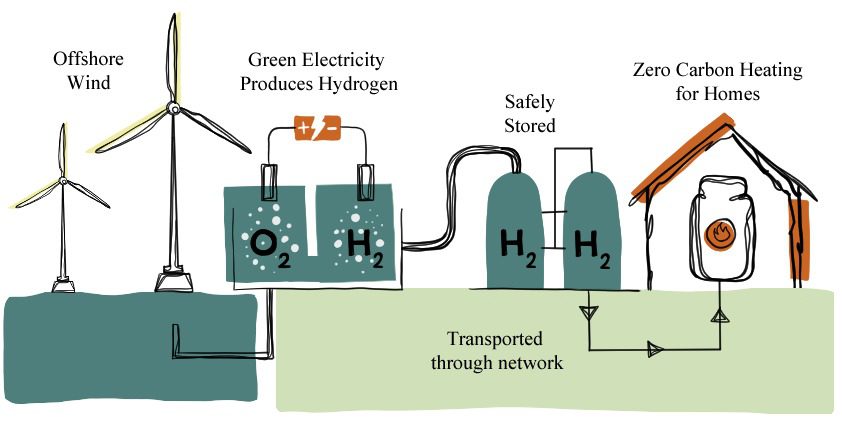
Worcester Bosch’s dive into clean, hydrogen-fuel heating
Worcester Bosch has taken a pioneering role in using hydrogen fuel. Their innovative work, including extensive research and designing hydrogen boilers, is a step towards transitioning to greener energy sources.
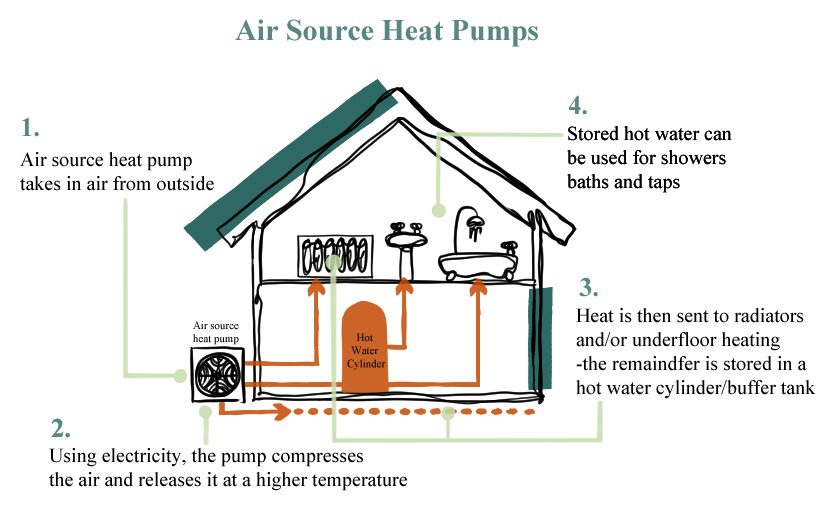
In preparation for a small pilot for home heating comparing an air source heat pump with a hydrogen boiler in two identical semi-detached houses on the university campus, this research looked at Worcester residents’ attitudes towards Hydrogen for home heating. It also looked at developing an educational program. Working with Heart of Worcestershire College, which trains heating engineers, this program is of utmost importance as it will equip technicians with the knowledge and skills necessary to maintain alternative heating solutions, thereby ensuring a smooth transition to greener energy.
The Three Objectives – Stepping into a sustainable future together
Step one – Research
- Source
- Where does hydrogen currently come from?
- Safety
- How safe is this technology?
- Comparison
- The ‘Pros’ and ‘Cons’ of hydrogen boilers compared to other home heating systems.
- Infrastructure
- Look into the infrastructure requirements, what can be reused?
- Transition Cost
- Initial installation costs and recurring costs such as maintenance and the fuel itself.
Step Two – Document
The viewpoints of university staff, students, and Worcester residents regarding hydrogen-fuelled boilers for residential heating were compiled.
This allowed true insight into all the current opinions and knowledge, providing valuable context in informed educational efforts, and highlighted the importance of their contribution to this transition to greener energy. Your thoughts and opinions are crucial in shaping the future of sustainable heating.
Step Three – Create
Understanding the thoughts and opinions on sustainable heating wasn’t enough; the aim was to make a difference.
Drawing on research findings, an accessible educational tool was created that will simplify information about hydrogen fuel as an alternative, making it available and accessible to a wide audience of Worcester and UK residents.
Field research and public opinions on hydrogen fuel
The project examined costs, safety features, installation procedures, and efficiency, creating a better understanding of the impacts of Hydrogen fuel heating and providing recommendations for the project partners to consider in the next phase of this small pilot.
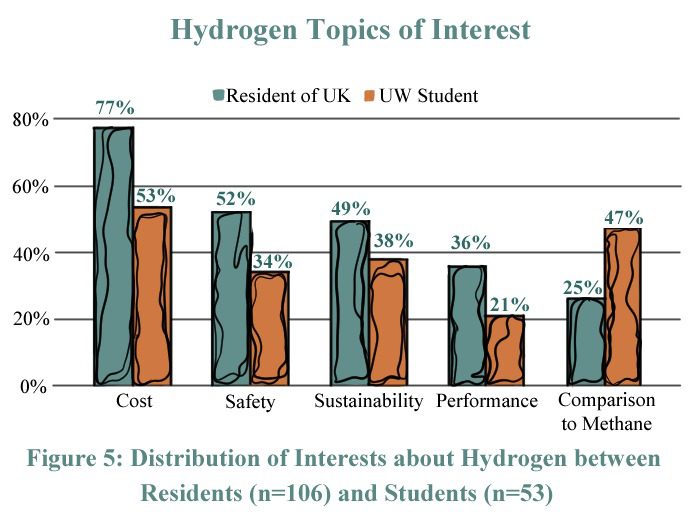
Utilising multiple databases helped to facilitate conversations around hydrogen boilers and their ever-growing promise. A focus was made on gauging the public’s opinions. These surveys reached both Worcester residents and students of the various Worcester campuses. By capturing diverse perspectives, common themes, concerns, and areas of interest related to hydrogen heating arose.
How do we feel about hydrogen fuel as a community?
What we found that public discussions on the topic of hydrogen-fuel home heating were met with one of three responses:
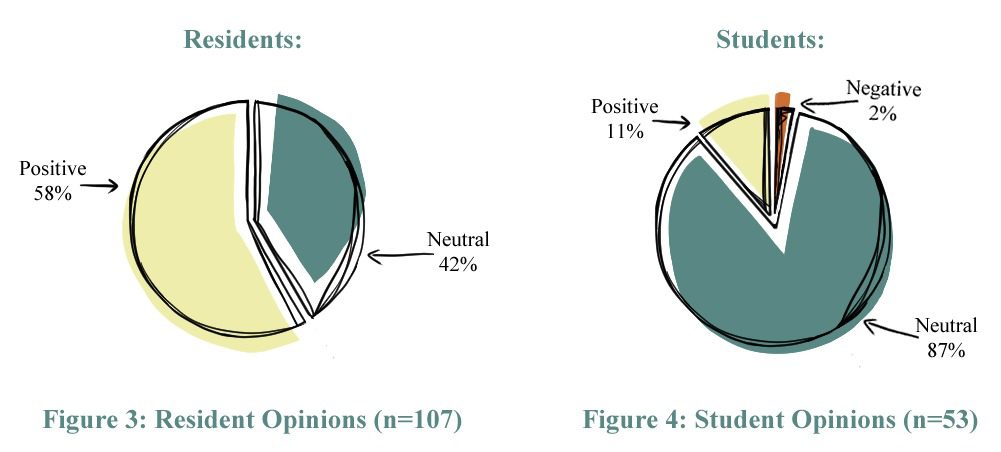
The responses yielded mixed results. Many felt neutral about the topic, explaining that they did not know enough about hydrogen fuel to have a positive or negative opinion.
Getting to know how the students and residents of Worcester felt about hydrogen was important. Educational materials, including posters, pamphlets, and informative door hangers, were created to help support the education of Worcester residents on the topic of hydrogen fuel heating. The goal was to empower students and residents with accurate information about hydrogen’s potential as an alternative fuel for home heating. Eliminating any misconceptions on the topic as a whole.
The hope we hold for the future

The recommendation for the project sponsors includes both short-term and long-term goals. In the short term, the focus is developing a public education campaign to increase awareness and acceptance of hydrogen boilers. There are still many uncertainties surrounding various aspects of the implementation process.
Looking ahead, the long-term plan involves continuing the hydrogen pilot project. This holds the promise of facilitating a direct comparison of alternative heating methods. This will also provide an opportunity to collaborate with the Heart of Worcestershire College to educate technical staff about alternative heating technologies.

This project serves as a stepping stone toward bridging knowledge gaps and fostering discussions within our community.
Listen to the student researchers discussing their research here.